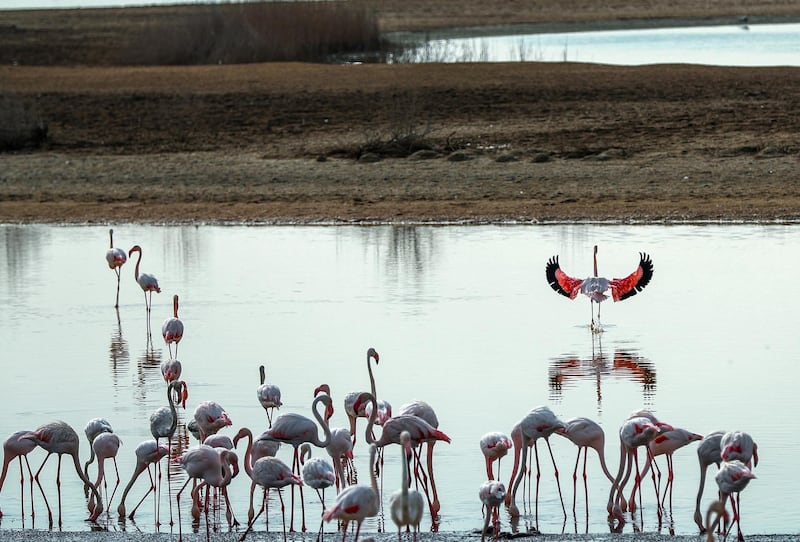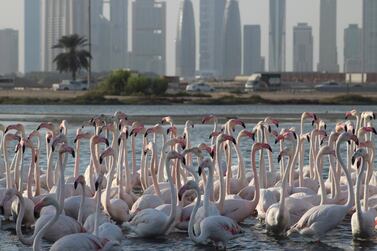Climate change represents a major threat to the UAE’s wetlands, a senior environmental official has told the World Ocean Summit.
A two-degree rise in global temperatures could place the precious natural habitats under huge pressure, said Fahed Al Hammadi, acting assistant undersecretary for the green development and climate change sector at the Ministry of Climate Change and Environment.
Mr Al Hammadi warned that hotter temperatures, rising humidity and increasing sea levels were the most likely regional effects of climate change. And wetlands are most susceptible to these changes.
“We can see that there are threats to them,” he said on the third and final day of the summit, being held in Abu Dhabi.
“We must be prepared in the UAE to adapt to the changes. It is a local problem," he said.
Wetlands are areas that are covered permanently by salt or freshwater. They can act as giant sponges by protecting against flooding, while they are also a natural habitat for flora and fauna. Wetlands can also cool the air, filter pollutants, treat sewage and even boost tourist. Al Wathba wetland in Abu Dhabi, for example, offers a welcome weekend retreat from city life.
Wetlands all over the world are most vulnerable to climate change, with about 60 per cent lost globally since the 1970s. The UAE has nine “wetlands of international importance”, which span 39,080 hectares. They are also known as Ramsar sites, named after the Iranian city where the convention on international standards was agreed in 1971. It came into force in the UAE in 2007.
“Protecting wetlands is more essential than ever,” said Hiba Al Shehhi, director of bioveristy at the ministry. “They need protection from disturbance and we are also working to mitigate the effects of human development [on them].”
Ms Al Shehhi said authorities were working on an eco-tourism strategy to build awareness about the wetlands.
“We are not saying we won’t allow people (to visit) – but it must be eco-friendly and create a balance between tourism, development and protection of habitat.”
The most recent designation for a UAE wetland came in February with the Hatta Mountain Reserve declared as the UAE’s ninth wetland of international importance. The reserve is located in the Hajjar mountains and the rain it catches helps replenish two major reservoirs at the Hatta and Al Ghabra dams. Given that the UAE needs every drop of water it can get, the site represents a rare freshwater ecosystem.
"Wetlands are so important because they are the first line of defence against sea level rises and storms," said Enric Sala, explorer-in-residence at National Geographic.
“You have 260 species of birds at Al Wathba alone – they are the most efficient eco-systems on the planet. We have to preserve what we have and restore as much as possible.”
Mr Sala that despite all the damage that has been done to wetlands, the natural environment does not hold a grudge.
“Give them some space and they will heal and come back.”
The warnings on the UAE’s wetlands came during a panel assessing the forthcoming UN Intergovernmental Panel on Climate Change’s special report on the oceans. The report is due later this year and presents a gloomy forecast for the future.
For example, a two-degree rise above pre-industrial levels could wipe out the world’s coral reefs by 2050. Mr Al Hammadi refused to be drawn on whether the UAE would support a potential global carbon tax.







